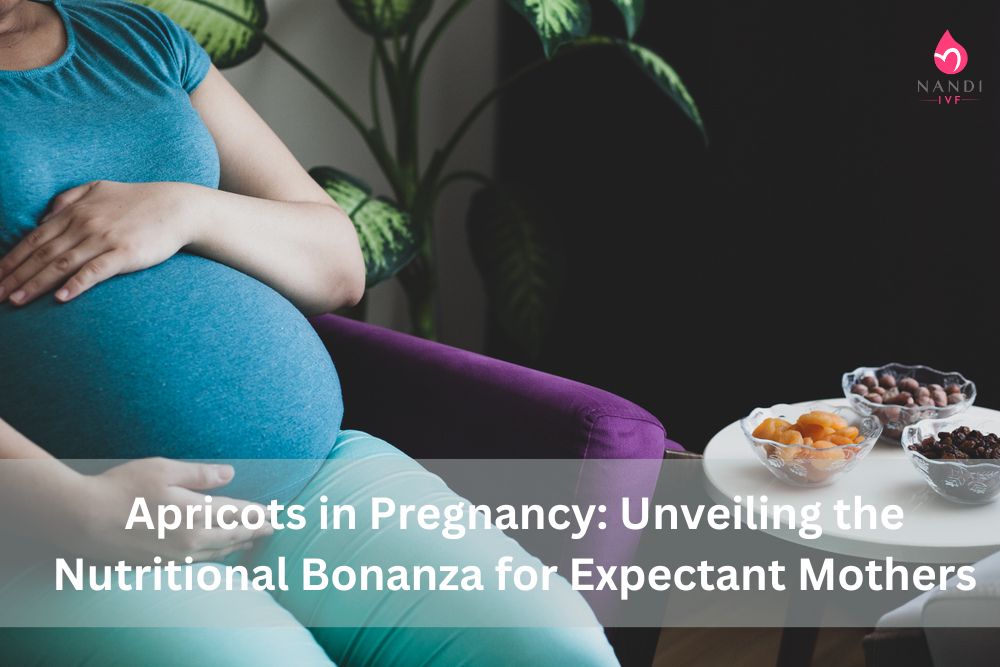

Apricots in Pregnancy: Maintaining a balanced and healthy diet throughout pregnancy is critical for the health of both the mother and the growing baby. One often-overlooked fruit that deserves a place on the menu is the apricot. Apricots are packed with essential nutrients and offer many benefits for expectant mothers. This comprehensive guide will explore the nutritional advantages of including apricots in your pregnancy diet, address common concerns, and answer frequently asked questions such as “Can I eat dried apricots during pregnancy?” and “Is apricot safe in pregnancy?”
Apricots in pregnancy are not just delicious fruits; they are a nutritional powerhouse that can contribute significantly to a healthy pregnancy. Apricots are rich in vitamins, minerals, and fibre and offer a well-rounded nutritional profile.
Read Also: Jackfruit During Pregnancy: Benefits, Risks, and Side Effects
Apricots emerge as unsung heroes in the realm of pregnancy nutrition, offering a plethora of health benefits that extend beyond mere taste. Active voice and a focus on the keyword Apricots in Pregnancy infuse vibrancy into understanding the specific advantages they bring to foetal development and maternal well-being.
Brimming with essential vitamins and minerals, apricots play a pivotal role in fostering optimal foetal development. Rich in vitamin A, crucial for embryonic growth and vision development, and vitamin C, supporting the formation of collagen critical for the baby’s skin and bones, apricots contribute to the holistic development of the growing baby. Incorporating apricots into the maternal diet becomes synonymous with nurturing a thriving, healthy foetus.
Pregnancy often brings about digestive challenges, and here’s where apricots shine. The fibre content in these golden fruits is a natural digestive aid, alleviating issues like constipation that commonly plague expectant mothers. Pregnant women can promote regular bowel movements by incorporating apricots into their daily diet, ensuring comfort and well-being throughout this transformative period.
Iron deficiency anaemia is a prevalent concern during pregnancy, impacting maternal and foetal health. Apricots, a notable source of iron, offer a delicious solution. Active absorption of nonheme iron from apricots and vitamin C in the fruit enhances iron uptake. This can be a game-changer in combating anaemia, providing the necessary iron support for the increased blood volume essential for a healthy pregnancy.
Read Also: Consuming Jamun During Pregnancy: Benefits and Risk Factors
Apricots in Pregnancy: While apricots offer a bounty of benefits during pregnancy, it’s essential to tread cautiously, considering potential concerns and taking necessary precautions for a safe and wholesome experience.
Despite their nutritional richness, apricots may trigger allergic reactions in some individuals. Pregnant women, especially those prone to fruit allergies, should be vigilant. Common symptoms include itching, swelling, or digestive discomfort. Before incorporating apricots into the diet, consulting with a healthcare professional becomes crucial, ensuring a proactive approach to potential allergic responses.
The choice between organic and non-organic apricots warrants attention. Organic apricots are grown without synthetic pesticides, minimising exposure to harmful chemicals. However, the decision ultimately rests on personal preference and budget considerations. Thoroughly washing non-organic apricots can reduce pesticide residue, making them a viable option. Nevertheless, pregnant women may opt for organic varieties to further mitigate potential risks associated with pesticide exposure.
While the nutritional benefits of apricots are undeniable, moderation is key. Excessive consumption can lead to an influx of natural sugars, potentially impacting blood sugar levels. Additionally, the fibre content, while beneficial for digestion, can cause discomfort in excessive amounts. Striking a balance is crucial. Integrating apricots into a diverse and balanced diet, alongside other fruits and vegetables, ensures a well-rounded nutritional approach without overloading on any single component.
Read Also: What Foods to Avoid After Embryo Transfer: A Guide
Apricots in Pregnancy: Elevating your pregnancy diet with the goodness of apricots is practical and palate-pleasing. Here are tips to seamlessly integrate apricots, along with nutritious and delicious recipe ideas:
Apricots can be a valuable addition to the diet of expectant mothers, offering a host of essential nutrients that support a healthy pregnancy. From folate to fibre, the nutritional benefits of apricots contribute to the overall well-being of both the mother and the developing baby. Enjoy apricots in moderation, and consult your healthcare provider if you have any specific concerns. Embrace the goodness of apricots during pregnancy, and savour the journey towards a healthy and happy motherhood.
Embark on your journey to parenthood with confidence. Discover the compassionate care and expertise at Nandi IVF. Choose the path to family joy – schedule your consultation with Nandi IVF today.
Q1: Can I Eat Dried Apricots During Pregnancy?
Ans: Absolutely! Dried apricots are a convenient and nutritious snack for expectant mothers. They retain most vitamins and minerals in fresh apricots and are a concentrated energy source.
Q2: How Many Apricots Can I Eat When Pregnant?
Ans: Moderation is key. While apricots are a healthy addition to your pregnancy diet, consuming them in moderation is essential. As with any food, an excessive intake may lead to an imbalance in your overall nutrition.
Q3: Can You Eat Apricot Seeds When Pregnant?
Ans: It is advisable to avoid apricot seeds during pregnancy. Apricot seeds contain amygdalin, which can release cyanide when metabolised. Though the amounts found in apricot seeds are typically small, it’s best to err on the side of caution and exclude them from your diet during pregnancy.
Q4: Is Apricot Safe in Pregnancy?
Ans: Yes, apricots are generally safe for consumption during pregnancy. However, ensuring they are part of a well-balanced diet is crucial. If you have any concerns or specific health conditions, it’s always wise to consult with your healthcare provider.
Q5: Which Dry Fruit Is Avoided in Pregnancy?
Ans: While apricots are generally safe, it’s essential to be cautious with certain other dried fruits. Dried fruits with additional sugars or preservatives should be avoided. Additionally, moderation is key, as dried fruits can be calorie-dense.
Read Also: What To Eat After Embryo Transfer IVF?
1
2
3
4
5
6